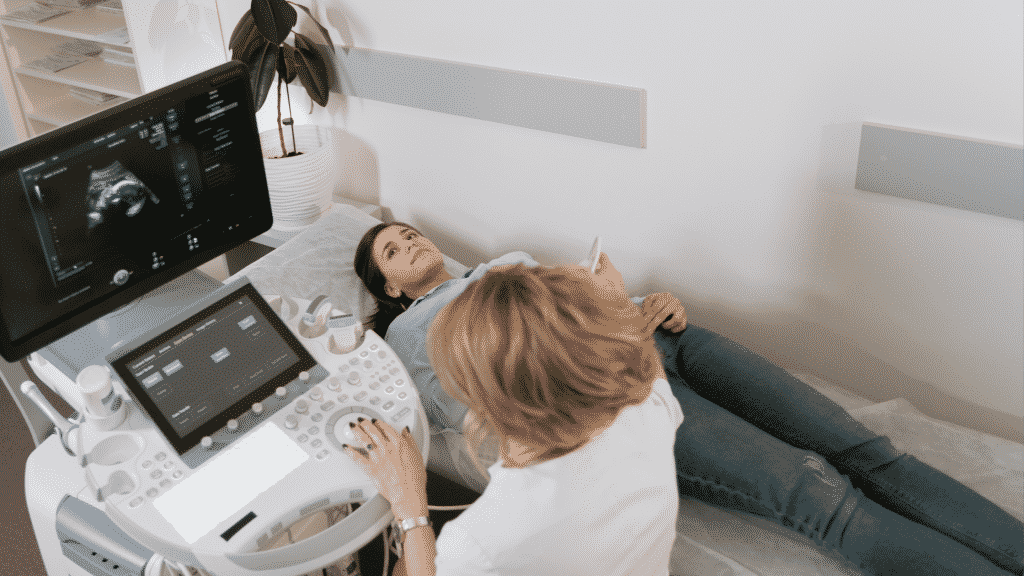Whether you are a first-time mum, or have previously had children, we know that it can be difficult to find helpful advice for mums-to-be. We have compiled these tips, all in one place, to help you to stay in touch with your body and keep yourself and baby safe and healthy.

Your Baby’s Movements
Most women will start to feel baby move from 16 – 24 weeks of pregnancy, however if this is your first baby, you may not feel movements until at least 20 weeks. If you have an anterior placenta, you may feel movements later in pregnancy, as the placenta is cushioning those early movements. There is not a set rule of movements each day, as all babies are different, the
important thing is to get to know your own baby’s movements from day to day.
From around 24 weeks, your baby will start to develop its own regular pattern of movement. Although a change in your baby’s movements could be nothing to worry about, it could also be a sign that your baby is unwell.
You should not rely on home dopplers, hand-held monitors or phone apps to check baby’s wellbeing, as they don’t always give a true picture of your baby’s health.
Movements should not slow down towards the end of the pregnancy. If you feel that your baby’s movements have reduced or changed, call your maternity unit straight away. You should be asked to go in for an assessment.

Stay Healthy
It is important to remain healthy for both yourself and baby during your pregnancy; therefore, you are advised to attend all of your antenatal appointments for the most accurate care tailored to your personal needs. In between your antenatal appointments, you should take care surrounding personal hygiene, washing your hands before and after handling food. You should also avoid people with infections such as chickenpox and slapped cheek syndrome to protect yourself and baby.
With regards to food, it is also important that you maintain a healthy diet, listening to the your body’s needs, as opposed to trying to overcompensate for baby. Remember: you should always, “eat for you, not for two”!
Foods to avoid:
When pregnant, you should avoid eating foods such as:
- Soft mould-ripened and soft blue-veined cheeses
- Raw or undercooked shellfish and meats (including dry-cured meats)
- Liver and products that contain liver, such as pâté
- Eggs that are not ‘British Lion Quality’ marked (including homemade mayonnaise)
- Vitamin A supplements such as fish liver oils
- Raw fruit and vegetables that haven’t been washed
You can find a comprehensive list of foods you should avoid on the NHS website, or you can always ask your healthcare professional for advice.
Another health-related piece of advice for mums-to-be is that, just because you’re pregnant, it doesn’t mean that you have to stop exercising. You can still stay active using gentle pregnancy exercises, joining a local exercise group, or even by simply walking and talking with a friend.

Trust your Instincts
The most important piece of advice for mums-to-be is: if you are ever in doubt about a pregnancy symptom that you are experiencing, it is always best to get it checked out. You should always be confident in reporting your concerns, and ensure that they are acted upon adequately. If you are ever worried about any aspect of your care, no matter how small, we would recommend that you ask to speak to your head of midwifery.
Questions to Ask your Midwife:
- What services are available locally to help me stay active?
- What can I do to reduce my chance of pregnancy complications?
- How can I book my free flu and whooping cough jabs?
- Can we discuss a birth plan?
- What is delayed cord clamping?
- What breastfeeding services are there?
You should call your maternity unit immediately if you experience:
- Obvious swelling of your hands and face, or upper body
- Severe pain just below the ribs in the middle of your tummy
- Vaginal bleeding or leaking fluid (clear or any colour)
- Noticing that your baby’s movements slow down, change or stop
- Problems with vision (such as blurring flashing lights or spots, or difficulty focusing)
- A persistent headache
- A high temperature
You should call within 24 hours if you have:
- Itching (particularly in your hands or feet)
- Abnormal vaginal discharge
You can also take advantage of Instant Midwife, a new service that is working with Window to the Womb and firstScan. Instant Midwife offers instant answers to the most common questions that are asked by expectant women.
We hope these pieces of advice for mums-to-be help you to feel reassured that you are taking the best possible care of yourself and baby during your pregnancy. If you are looking for the earliest possible pregnancy viability confirmation, you can book in with firstScan from as early as 6 weeks pregnant; if you are looking for reassurance from 16 weeks, Window to the Womb are here for you. You can book your appointments through our website, or you can feel free to contact your local clinic directly; they will be happy to help you find your nearest available appointment.
If you’re looking for support and guidance along your pregnancy journey, why not join our community of mums, who are here for you whenever you need it?
Looking for information regarding the Flu and Covid vaccines in pregnancy? You can find further information within our latest blog post.

